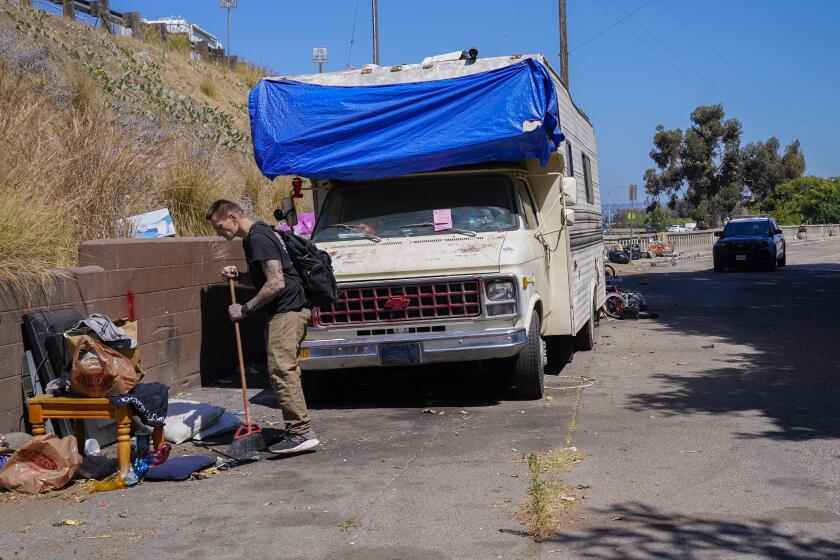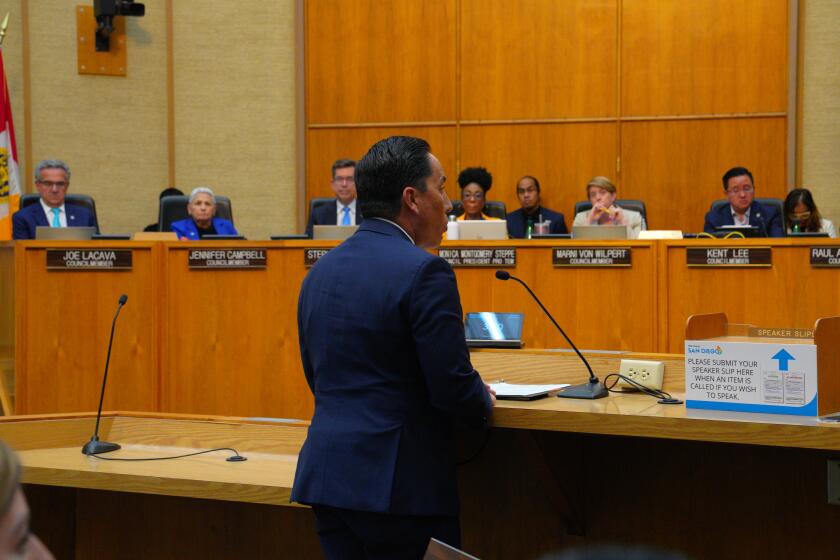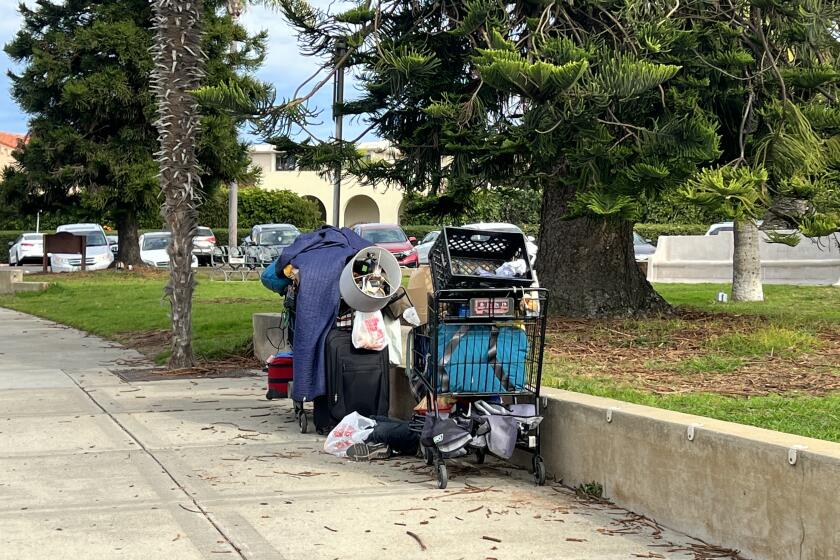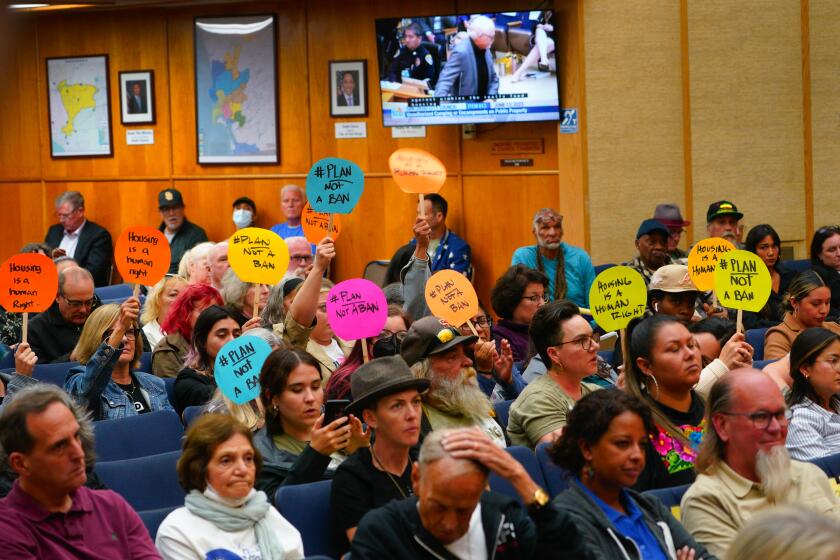San Diego council members propose new effort to put more homeless people into treatment
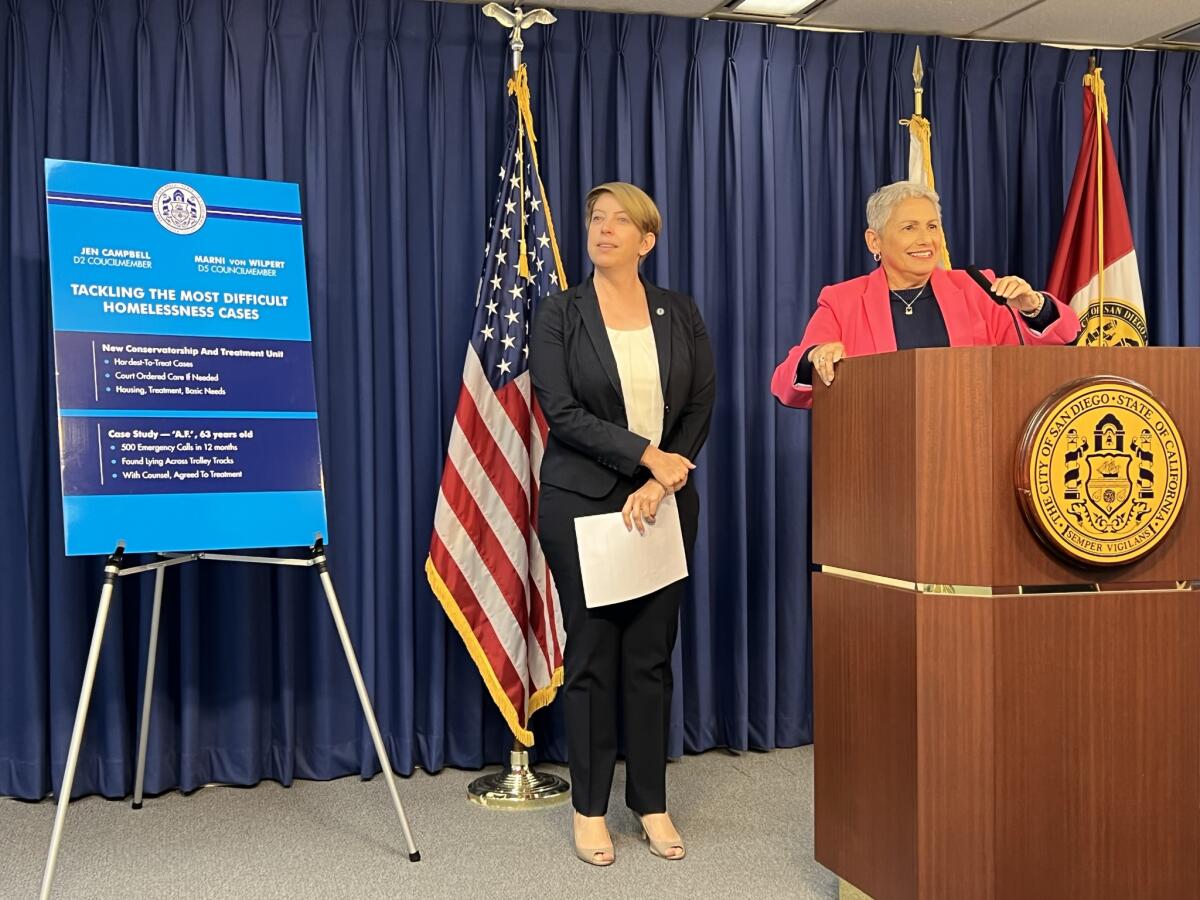
Jennifer Campbell and Marni von Wilpert say a new unit of the city attorney’s office would use conservatorships to help the most vulnerable people living on the streets.
Two San Diego City Council members are proposing a new unit of the city attorney’s office that could place more homeless people into conservatorship or programs to treat mental illness or addictions.
Councilwomen Jennifer Campbell and Marni von Wilpert said May 3 that they will ask for an additional $500,000 in the city’s fiscal 2022-23 budget to fund the Conservatorship and Treatment Unit, which would consist of two deputy city attorneys and one newly hired “treatment coordinator.”
Under conservatorship, a judge appoints someone to oversee a person’s medication, financial decisions and other activities.
Get the La Jolla Light weekly in your inbox
News, features and sports about La Jolla, every Thursday for free
You may occasionally receive promotional content from the La Jolla Light.
Campbell represents District 2, which includes Clairemont, Linda Vista, Pacific Beach, Midway District, Mission Beach, Ocean Beach and Point Loma. Von Wilpert represents District 5, which includes communities such as Rancho Bernardo, Rancho Peñasquitos, Sabre Springs, Scripps Ranch and Torrey Highlands.
They said the unit was requested by City Attorney Mara Elliott as an expansion of her office’s Lifesaving Intervention for Treatment program, which was created a few years ago. Von Wilpert said the city attorney’s office already has placed 11 people into conservatorship and is working with 20 more.
The new unit would focus on people who are the most frequent users of city emergency services, von Wilpert said.
As an example, Campbell said one of the 11 people already placed in conservatorship had made 500 emergency service contacts in 12 months and once was found by a San Diego Fire-Rescue Department crew lying across trolley tracks.
“It’s time San Diego stops just walking by these people who are suffering on our streets,” Campbell said. “We must start giving them the help and hope they deserve.”
Von Wilpert said the new unit would help take the burden off the city’s emergency response system.
“They’re calling 911 just to get food,” she said of people who would be the focus of the new unit. “They’re calling 911 just to get clothing or shelter, or they’re at risk of harming themselves or others. These are folks who cannot be helped by cycling through our emergency rooms. They actually need a court-ordered intervention to get back on their feet.”
Greg Anglea, chief executive of homeless service provider Interfaith Community Services and a member of the Regional Task Force on Homelessness, said he had not heard of the proposal but was cautious about efforts to increase the number of people placed in conservatorship.
Anglea said that in his experience, conservatorship is necessary for only a very small percentage of people on the street.
Rather than mandated conservatorship, most people on the street could be helped with services if they were adequate and accessible, he said.
“We have an absolutely broken system of behavioral health care,” he said. “To prioritize conservatorship is to look at the wrong end of the spectrum.”
The new unit’s process would begin with the treatment coordinator assessing the person’s history and deciding which path to follow.
Von Wilpert said not every case would result in conservatorship, as the treatment coordinator may refer a person to other options such as outpatient treatment, a group home or a medicated-assisted treatment program to overcome an addiction.
If conservatorship is sought, the treatment coordinator would assess a person’s condition and determine whether the individual should be referred to the county or the city, Von Wilpert said.
In severe cases, the county can petition a judge to appoint a public conservator to oversee a person considered gravely ill. A person under a public conservatorship may be in a locked facility and may be required to take medication under a court mandate.
In less-severe cases, the city can petition probate court to appoint a public guardian to oversee the health, shelter and welfare of people who cannot make decisions for themselves.
Once the treatment coordinator has assessed an individual, the two deputy attorneys in the unit would coordinate with the office of the city public guardian or the county public conservator and file a petition with the proper court, according to a news release from Campbell’s office.
Von Wilpert said homeless outreach teams also may refer people to the unit.
In March, Gov. Gavin Newsom proposed a new Community Assistance, Recovery and Empowerment (CARE) court that could result in more people receiving mandated treatment.
In making his proposal, Newsom said the new court is needed because the current system results in too few people being placed into conservatorship, leaving them on the street and leaving their loved ones frustrated and heartbroken.
Opponents of the proposed court include ACLU California Action, Disability Rights California, Western Center on Law & Poverty and more than 30 other groups. Among their concerns was the question of whether the court would fast-track people with disabilities into conservatorship and safeguard their rights.
Von Wilpert said all people who are facing a conservatorship hearing would be provided with free legal service through a public defender, and the hearings would be public.
The city’s budget review process is to begin Wednesday, May 4, and von Wilpert said she and Campbell will request a $500,000 revision to the budget presented in April to fund the new unit. ◆
Get the La Jolla Light weekly in your inbox
News, features and sports about La Jolla, every Thursday for free
You may occasionally receive promotional content from the La Jolla Light.

